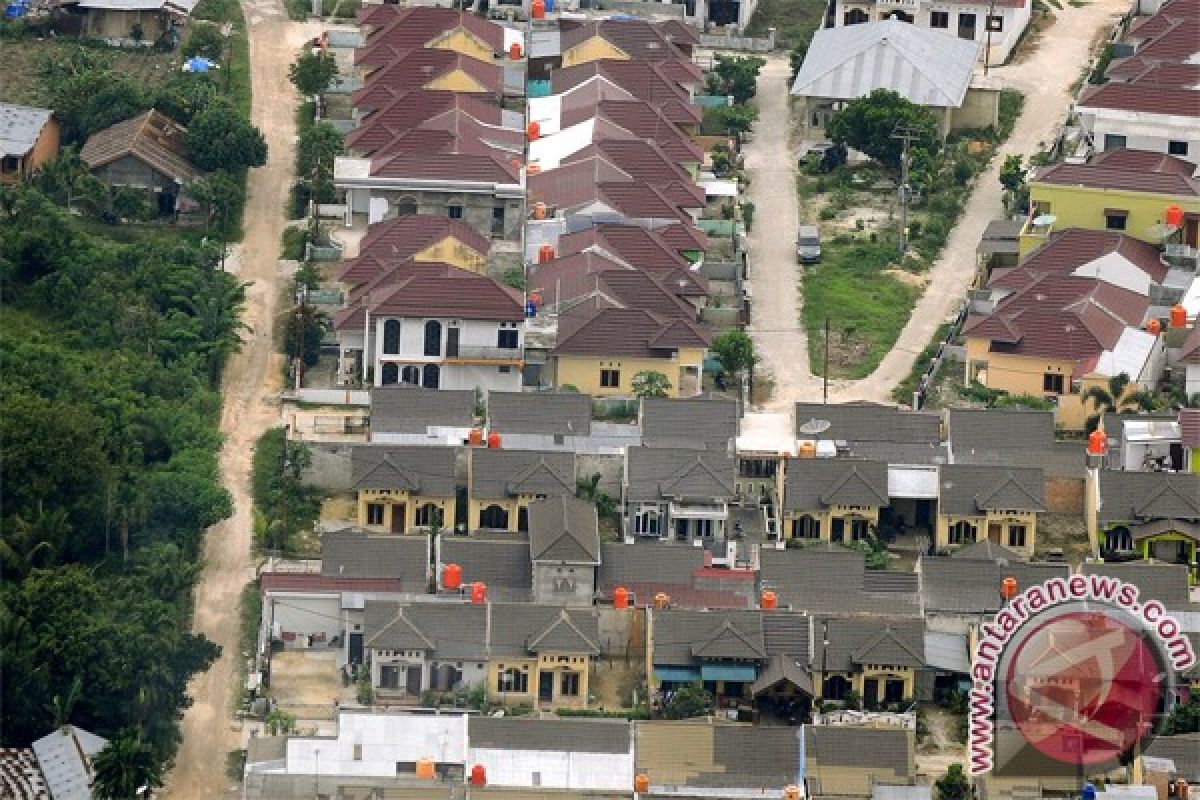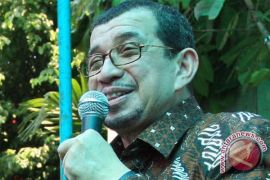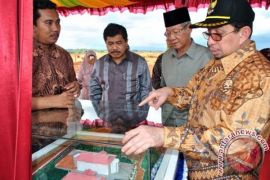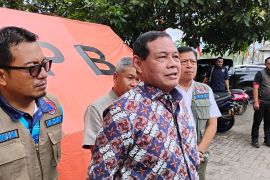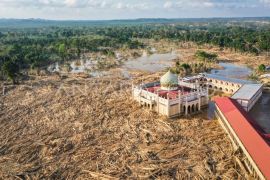"We hope they will construct their houses through a mutual cooperation system..."Jakarta (ANTARA News) - The government will build about one million houses for poor families as part of its efforts to further reduce the country`s poverty rate it has lowered from 14.2 percent in 2009 to 12 percent in 2012.
"Poverty indicators could be cut by half if poor families already have houses. Therefore, we want to provide houses for poor families. We want to include those in the `Keluarga Harapan` program," Social Affairs Minister Salim Segaf Al Jufri said on Wednesday.
The Ministry of Social Affairs has launched a family-based poverty elevation program called `Keluarga Harapan` program.
According to data from the National Statistics Agency (BPS), the rate of poverty in the country has continued to decline from 14.2 percent of the population in 2009 to 13.3 percent in 2010, 12.5 percent in 2011 and 12 percent in 2012.
Minister Al Jufri met with Minister for Public Housing Djan Faridz on Wednesday to discuss how to provide houses for poor families in Indonesia as part of the government efforts to reduce further the poverty rate.
According to Minister Djan Faridz, his ministry is planning to build one million houses for poor families until 2014. This program is aimed to speed up poverty alleviation programs in Indonesia.
"Last year we have a budget allocation for the construction of 250 thousand houses and this year we also get the same amount of allocation. If we have a budget for 500 thousand houses next year, we will have achieved one million houses by 2014," Djan Faridz said after the meeting with Minister Salim Segaf Al Jufri.
Faridz said his ministry also had a house repair program for the poor. Data on poor families in the program was taken from the ministry of social affairs.
The allocated funds for the construction of each of the poor family houses amounted to Rp7.5 million.
Minister Faridz said the house repair or building program was called `Rumah Swadaya` (people`s self-reliant housing) program. With the program poor families were expected to have proper houses.
The amount of the allocated funds for this program is relatively small but, based on the name of the program (self-reliant), the people are expected to cooperate in the construction of their houses.
"We hope they will construct their houses through a mutual cooperation system so that they would no longer need additional budget for hiring workers. Local officials are expected to be active in organizing residents in building their houses so that the small funds are expected to be enough," Minister Faridz said.
Therefore, the minister added, the construction of houses in the `rumah swadaya` program must involve regional government officials. The program is also expected to involve the military. The Indonesian Defense Forces personnel are expected to help them develop their houses.
"If they hire workers to develop houses, the Rp7.5 million budget would not be enough but if they build their houses through a mutual cooperation system, the fund would be enough," Minister Faridz said.
In the meantime, Social Affairs Minister Salim Segaf Al Jufri said the number of Indonesia`s poor families now reached 2.4 million. Of the number, two thirds have houses not worth for living.
"We are not able to build houses for them. Therefore, we are coordinating with the ministry of public housing to handle a housing program for poor families. We have provided a very valid data on the number of poor families in the country," Salim Segaf Al Jufri said.
The social affairs minister said that he already had a "bedah kampung" program or a Kampong community development program to develop houses based on a community cooperation system.
Through coordination with the ministry of public housing, the construction of houses for poor families is expected to be accelerated, Al Jufri said.
This is in line with Public Housing Minister Djan Faridz`s `rumah swadaya` program.
But Faridz said families who were assisted through the `rumah swadaya` program still could face a financial problem for the health and education programs of their children.
"Therefore, based on the president`s instruction that ministers should cooperate in alleviating poverty, we will build houses for poor families while the social affairs ministry will handle its poverty alleviation aspect through the family-based poverty alleviation program," Faridz said.
The public housing minister said that poverty alleviation should also involve other ministries and institutions.
Cooperation and Coordination between the ministry of social affairs and the ministry of public housing would become the basis for inviting other ministries and other institutions to join the poverty alleviation program, he said.
Director General for Social Protection and Insurance Andi ZA Dulung said families had 14 criteria to be classified as poor. Of the 14 criteria, housing is the most serious problem faced by most poor families.
"Therefore, through coordination and cooperation with the public housing ministry, we are handling the housing problem so that they would be able to improve their welfare," he said.
In the meantime, state-owned public housing firm Perumnas has set itself a target of building at least 20 thousand houses for civil servants in 2013.
"We will continue to build our regular public housing programs such as the development of modest landed houses in all districts and cities in Indonesia for civil servants and the public," Perumnas President Director Himawan Arief Sugoto said recently.
Perumnas develop houses not only for lower classes of people.
As part of its New Perumnas Program 2014, it has set a number of strategic housing development projects.
"Among the strategic projects that we have been launching include a large-scale project in Driyorejo, East Java, which occupies a land site of 450 hectares," Himawan Arief Sugoto said.
The other large-scale project is located in Medan, North Sumatra. The Medan project is done in cooperation with state-owned plantation firm PT PN II. The project sits on a 850 hectares of land.
He said that Perumnas would also continue the construction of its 1,000 Tower program. The towers are being developed among others in Jakarta, Cengkareng, Kemayoran, Sentra Timor Bekasi and Bandung.
Through its subsidiary PT Propernas, Permunas has also set the target of constructing hotels in Semarang and Bandung in the middle of 2013.
(T.A014/F001)
Reporter: Andi Abdussalam
Editor: Priyambodo RH
Copyright © ANTARA 2013
